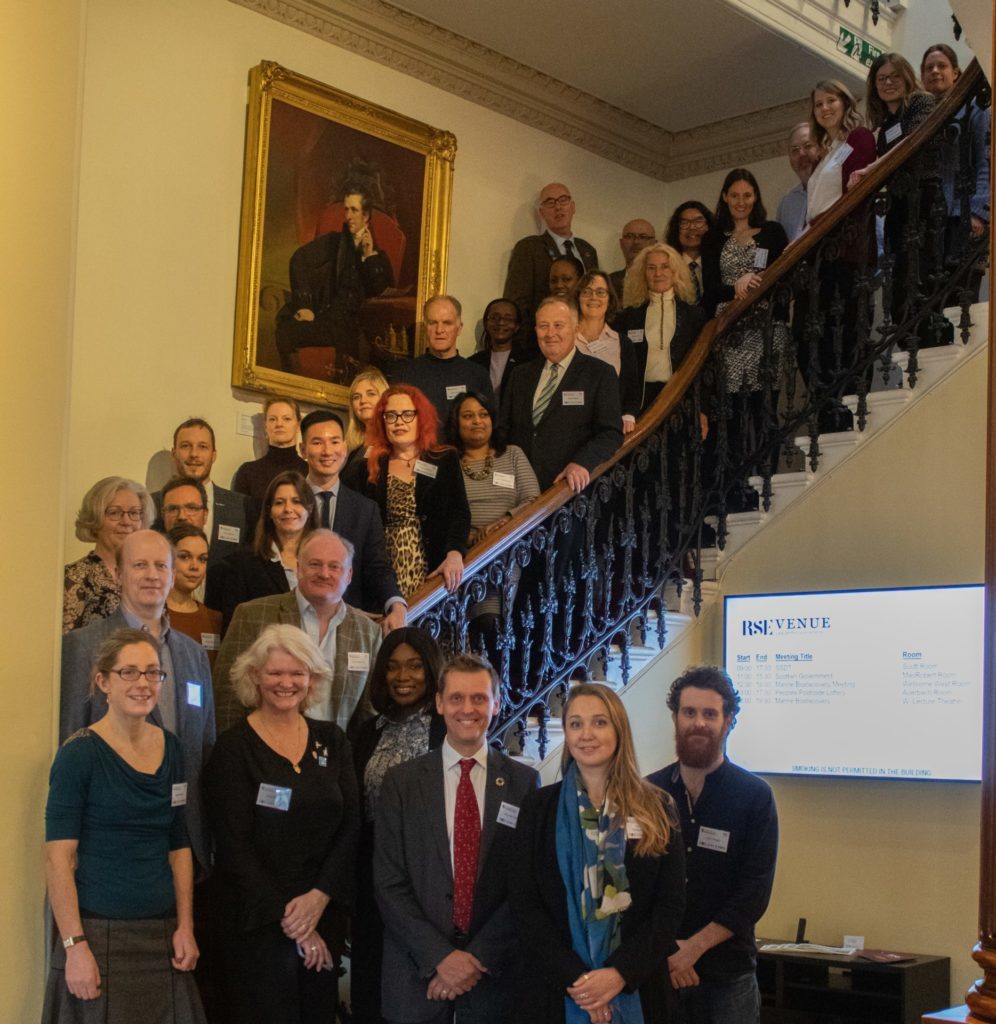Workshop: Towards a package: marine biodiversity beyond national jurisdiction

Towards a package: marine biodiversity beyond national jurisdiction
Royal Society of Edinburgh, UK, 22-23 January 2020
More than 50 participants gathered at the Royal Society of Edinburgh, 22-23 January 2020, to discuss the development of a historic new high seas treaty: “a new international legally binding instrument for the conservation and sustainable use of marine biological diversity of areas beyond national jurisdiction under the United Nations Convention on the Law of the Sea”. The workshop was held under the auspices of the University of Aberdeen, Deep Ocean Stewardship Initiative and the Atlas project. The participants included policymakers, diplomats, civil society and academic experts from legal, scientific and other backgrounds. The facilitated discussions, convened under Chatham House rule, began with short provocations from participants on key issues to set the scene, highlighting key issues of divergence and seeking to advance common views. With the fourth (and possibly final) round of negotiations fast approaching, this workshop provided a valuable opportunity to exchange views and identify areas where further discussions are needed.
Dr Harriet Harden-Davies (University of Wollongong) was one of two invited speakers for the session on Access and Benefit-Sharing. Her intervention stressed the importance of considering the scientific, ecological and social value of marine genetic resources in order to frame the issue of benefit sharing and enhance the link to biodiversity conservation. She also highlighted the link between benefit-sharing and capacity building and technology transfer, and proposed ways for the BBNJ agreement to create a transparent and participatory enabling environment for science cooperation.
In addition to the workshop, a public event and reception was held at the Royal Society of Edinburgh on the evening of 22 January. Harriet Harden-Davies delivered the opening address. She highlighted the distant, deep and diverse nature of marine areas beyond national jurisdiction and the importance of international cooperation to tackle challenges relating to conservation and sustainable use. The event was at full capacity with more than 110 attendees and, as a lively discussion continued into the night, the broad interest in this shared area of our global ocean was clear.

